As an underwriter for an insurance company providing commercial property insurance policies, one of the first steps you’ll typically do after receiving a policy application is to order a commercial inspection of the property being considered for coverage. Commercial building inspections are used not only for new construction but also for existing properties in order to:
- Make sure a business is operating safely and efficiently
- Uncover any potential hazards that could put building occupants or tenants at risk
- Validate decisions relating to specific upgrades or repairs needed to be undertaken
- Assist in the underwriting process by giving you a good handle on a property’s risk profile so that you’re able to accurately set a price for an insurance policy being underwritten
What is a Commercial Inspection?
A commercial building inspection evaluates a building that’s being used for commercial purposes that are intended to produce profits from their operation, including rental income. This may include:
- Retail shops and cafes
- Restaurants
- Malls
- Multi- or single-family residential buildings
- Office buildings
- Factories
- Warehouses and many other types of commercial properties
The purpose of a commercial building inspection is to uncover and identify any issues, whether structural or otherwise, that represent a potential risk. When being conducted under the direction of your insurance company, any risks found will typically mean increased premium costs for the policy being written. As an alternative, potential risks must be mitigated prior to a policy being issued.
Commercial Versus Residential Property Inspections
Many property inspectors start off as residential inspectors and, once experienced, get into the commercial side of the business. While each home being inspected may be somewhat unique, most homes have similar characteristics that make inspecting them somewhat similar. A single inspector can also often handle a complete residential inspection on his or her own.
Commercial inspections, however, come in all shapes and sizes and two are rarely the same. Unlike residential inspections, where the complexity of a commercial building inspection may require the assistance of specialist inspectors hired as subcontractors. This may be due to the need for specialized knowledge or training or for specialized equipment.
Many commercial inspections must deal with aspects of property construction or the processes being conducted within s business that are outside the inspection scope of many local code compliance offices. The need for special inspections as well as the overall scope of an inspection will be decided upon during the permitting process. These special inspections, subcontracted, as it were, to specialist inspectors, could cover any number of areas. Just as a land developer may hire a general contractor to oversee a variety of subcontractors who are the ones to perform the construction work, a commercial inspector’s responsibilities may include the hiring of a variety of subcontractors who produce inspection reports on specific building systems such HVAC, structure and roofing, electrical, fire safety and more.
Inspector Qualifications
Commercial inspectors are certified professionals who are qualified to perform a commercial property inspection or a specific portion of an inspection in line with their specialty. The inspector’s job is to identify any defects in the building or property and to produce a report that includes repair recommendations. An inspection is performed when a company wants to buy or rent a property or, in the case of an insurance inspection, to determine the condition of the property so that an informed decision can be made as to whether, as the underwriter, your company should insure the property and at what cost.
The Value of a Quality Commercial Insurance Property Inspection
A complete, quality commercial building inspection can do many things, including:
- Making sure those who are in charge of a business are made aware of whether the operation is being run safely and efficiently and that all potential risks to tenants, employees, or visitors are uncovered and plans made to mitigate any risks found
- Providing information needed to make educated decisions about upgrades to a property
- Helping determine the costs of repairs or replacement from an insurance point of view
- Providing important, needed information to you, the insurance underwriter, to help make the commercial insurance underwriting process as fair and accurate as possible
Hiring the Best Candidate
When hiring a company to accomplish your commercial inspections, you want someone who meets the highest industry standards. This includes a dedicated following of ASTM E2018-15 Standard Guide for Property Condition Assessments: Baseline Property Condition Assessment Process, which is the industry standard for commercial inspections.
One top-line inspection company, Insurance Risk Services, has been providing high-quality insurance inspections nationwide for many of the leading national insurance companies for four decades. For personal attention, rapid response times, and communication done directly with you, the underwriter, choose IRS. Contact Insurance Risk Services today for the best in both commercial and residential inspections.


